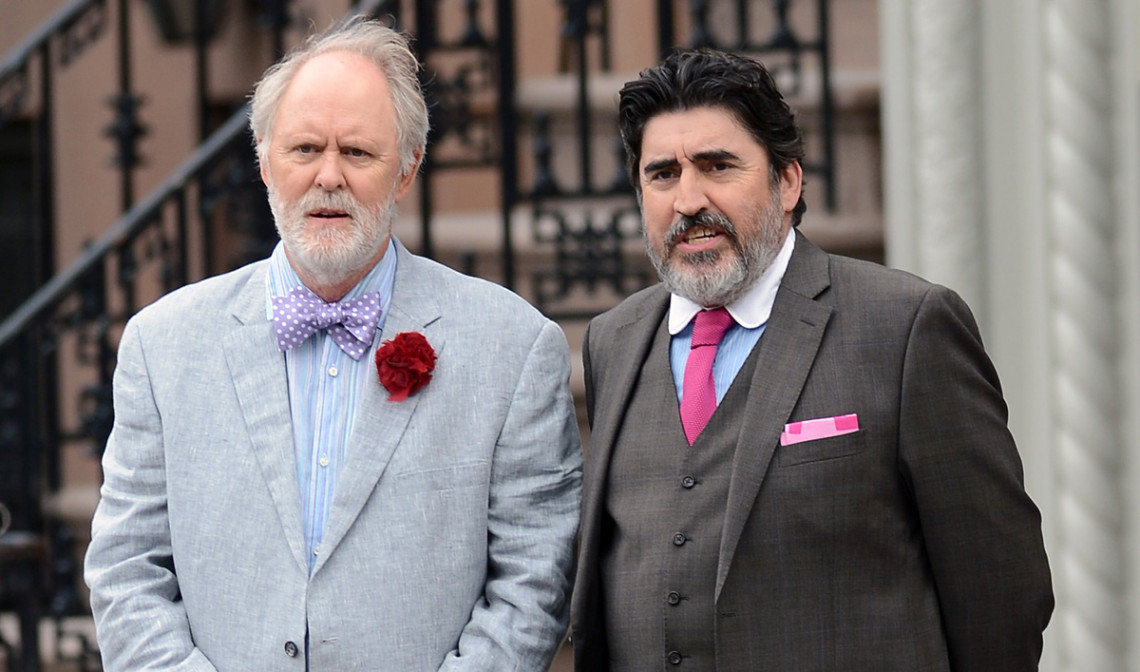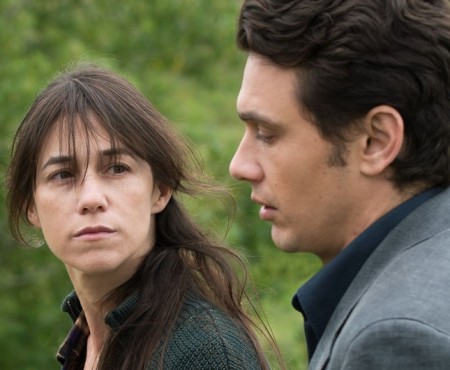Berlinale is a lucky event for Keep the Lights On‘s Ira Sachs. Two years ago, the Festival’s 62. edition brought him a Teddy Award (awarded to the best LGBTQ feature). His latest entry, Love is Strange, which was enthusiastically received at Sundance, is a part of the 2014 Panorama section and is also competing for the award.
Among strong competition and having recently won the prestigious prize, Sachs might not be a clear frontrunner this year, though he has a good shot at an audience award. Love is Strange exudes a recognizable feeling of warmth and acceptance, touches upon common social injustices, and depicts familiar struggles and universally desired goals. A simple, moving story of two elderly gay man, whose marital union – instead of beautifully crowning their almost 40 years of shared existence – shatters the safe reality they’ve built. Despite its innate sweetness Love is Strange is not a cheap crowd pleaser, but a natural-born heart-winner.
A surprisingly linear narrative and rather conventional visuals might come as a surprise after Keep the Lights On‘s more fragmentary, pulsating storytelling, and bold sound and camerawork. Despite its lack of bravery, the cinematic language co-created by Sachs and his usual partner-in-crime, Mauricio Zacharias, simply matches the characters’ aura, their energy, and outlook on life.
Sachs’s trademark critical eye and a hint of rebellion manifests itself in the story. When changes in the law after almost four decades together allow Ben (John Lithgow) and George (Alfred Molina) to get married, they expect it to be nothing else but what the culture and media claims: the most beautiful days of their lives. The film opens with them hurrying up to the ceremony, elegantly dressed, and slightly nervous. In this sequence the viewers get an instant ticket to their everyday microcosm, are able to spot their ways, habits, character differences, trace how the couple’s communication patterns are formed, meet their family and friends, and see how, despite what conservative media insinuates, socially forming and full their relationship is.
However, in certain environments, the right to legalize a loving, dedicated and responsible relationship is reserved for those conforming with the heteronorm only. Homosexuality is reluctantly accepted as a “tendency”, but acting upon it? How despicable! George, a music teacher, happens to work in a Catholic school, and when he dares to officially seal the “unholy” union he’s been openly living in since starting his job, the authorities immediately turn their backs on him. The partners are punished for their honesty, tainted for the refusal of living in a lie. Both over 60 years old, unemployed and quite unemployable unexpected victims of ageism and homophobia, the men have to sell their beloved apartment and live with their friends and relatives. This dramatic shift not only challenges their own relations, but also the intimates attitude towards them.
This is an undeniable strength of Sachs and Zacharias’s script. The story doesn’t focus on main characters only, but directs its penetrating gaze to supporting characters as well. Kate (Marisa Tomei) and Elliott (Darren E. Burrows) who took Ben under their roof seem to be a very laid-back, modern couple of two creative entities, but a more insightful look reveals misunderstandings piling up and parenting disagreements. George’s saviours Ted (Cheyenne Jackson) and Roberto (Manny Perez) are a very carefree, sympathetic couple, but their party-loving lifestyle poses new challenges to the rather calm man, who happens to sleep on their always occupied-by-strangers couch.
Elderly spouses are, from a certain perspective, put in the position of young adults, striving to become independent yet still having to rely on the kindness of strangers. This inversion of common order becomes a source of comical tension, enjoyably garnishing the whole storyline. On top of everything, Ben–himself rather detached, a little clumsy and eccentric–manages to create a strong bond with Kate and Elliot’s rebellious son Joey (Charlie Tahan), who’s only learning, what love can be. Casting director Avy Kaufman has done a great job – the couples, that “adopt” these stranded spouses serve as a lens focusing on different shapes and patterns of loving. And the struggling with everyday obstacles of life is so keenly delivering.
If Keep the Lights On was an intense storm of cinematic emotions fueled by autobiographical energy, Love is Strange is a calm sea with slight foamy creases, and invisible, but dangerous vortexes here and there. Told by the same person, but drawing from a different phase of life, Sach’s new film is a true love story that is mature, but by no means old.




















